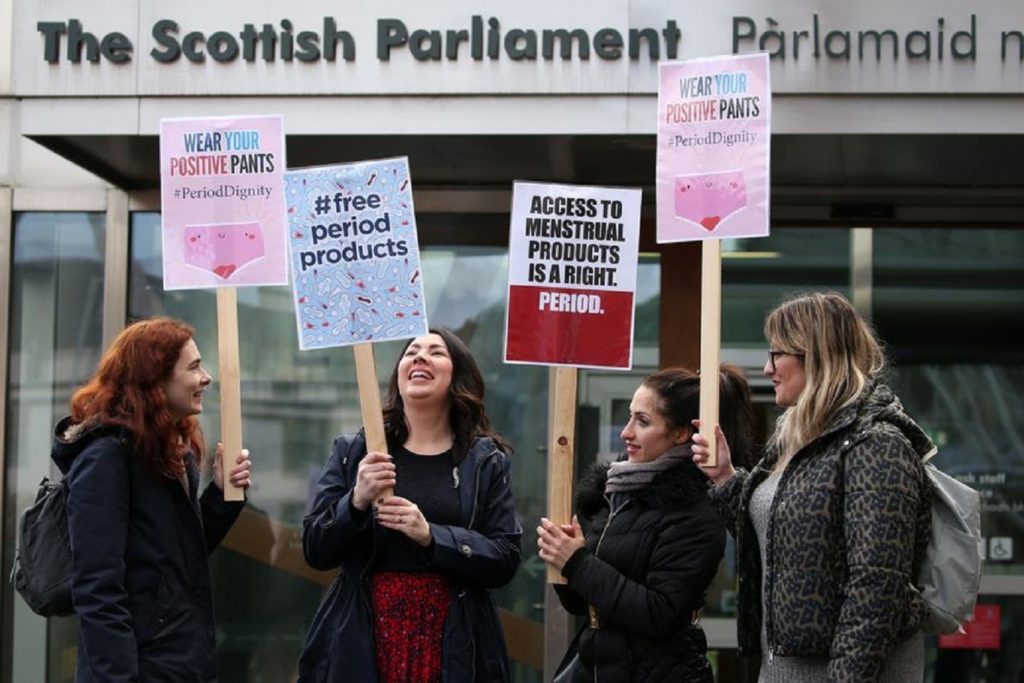Scotland is now the first country in the world to make access to free period products a legal right.
Starting Monday, public settings will be required to provide sanitary products for those who need them, according to the new Period Products Act.
This comes nearly two years after Scottish lawmakers unanimously passed the Period Products bill, representing landmark legislation for the global fight against period poverty– a lack of access to period products when people can’t afford them.
The initial bill was first introduced by Labour MSP, Monica Lennon, who has long seen these products as a basic necessity and believes that providing access to them is important for people’s dignity.
Lennon has been campaigning since 2016 for the Scottish government to provide free period products for anyone who needs them and now that it’s become a legal requirement, she says, “This is another big milestone for period dignity campaigners and grassroots movements which shows the difference that progressive and bold political choices can make.”
“As the cost-of-living crisis takes hold, the Period Products Act is a beacon of hope which shows what can be achieved when politicians come together for the good of the people we serve.”
With the new law, every council in Scotland will be required to consult with local communities to determine the best locations for people to access menstrual products. Locations would include libraries, swimming pools, public gyms, community buildings, town halls, pharmacies and doctors offices.
There will even be a mobile app called PickupMyPeriod for people in Scotland to easily find which products are available at different points of access. Home delivery will also be available.
These options will provide period dignity to the one in four women in Scotland who’ve faced period poverty at some point- a statistic found in a pre-pandemic study from the social enterprise, Hey Girls, which works to tackle period poverty in the UK.
The Covid-19 pandemic only compounded issues relating to period poverty as seen in a 2020 study from Plan International U.K. that found almost a third of girls and women aged 14 to 21 struggled that year to access or afford menstrual products.
The average period lasts about five days and can add up to £8 per month for pads and tampons, a cost many women in Scotland can’t afford.
Right after the landmark legislation was passed to eradicate this period poverty, Lennon tweeted, “Proud of what we have achieved in Scotland, We are the first but won’t be the last.”
Lennon has hope that other countries will follow Scotland’s lead in giving free access to period products.
Some countries have lowered or eliminated taxes on period products, including Australia, Kenya, Canada, India, Colombia, Malaysia, Nicaragua, Jamaica, Nigeria, Uganda, Lebanon, Trinidad and Tobago and a dozen US states.
New Zealand and Seoul offer free menstrual products in school and Northern Ireland is considering a similar measure to Scotland.
Nonetheless, Scotland is the first to give citizens a legal right to access them.
Scotland’s social justice secretary, Shona Robison, says providing access to free period products is “fundamental to equality and dignity.”
“We are proud to be the first national government in the world to take such action,” says Robison.
In addition to ending period poverty, Lennon sees this government move as the start of a massive culture change, where period stigma will no longer be tolerated.
“There’s more emphasis on menstrual well-being and a renewed focus on tackling medical misogyny.”


